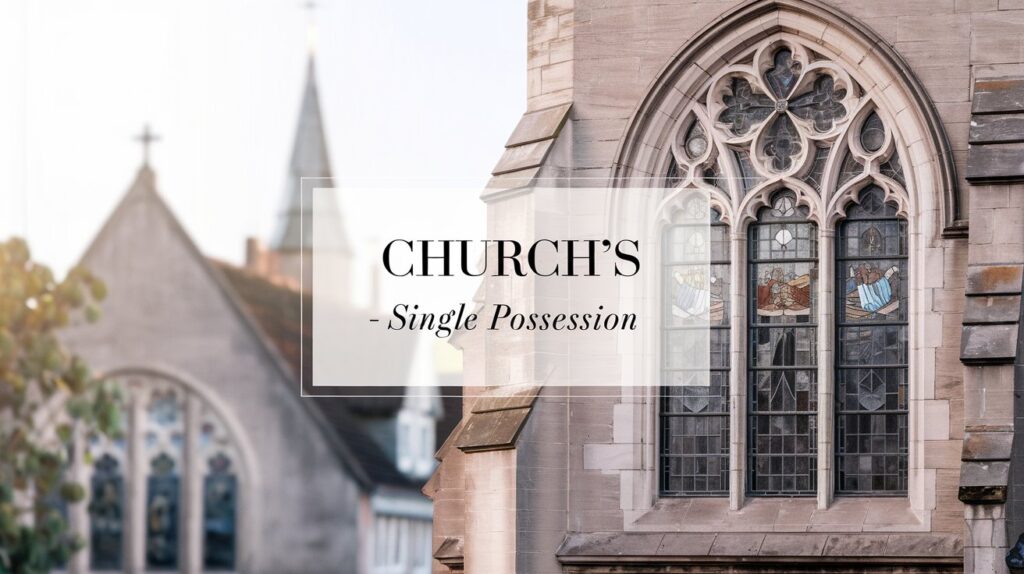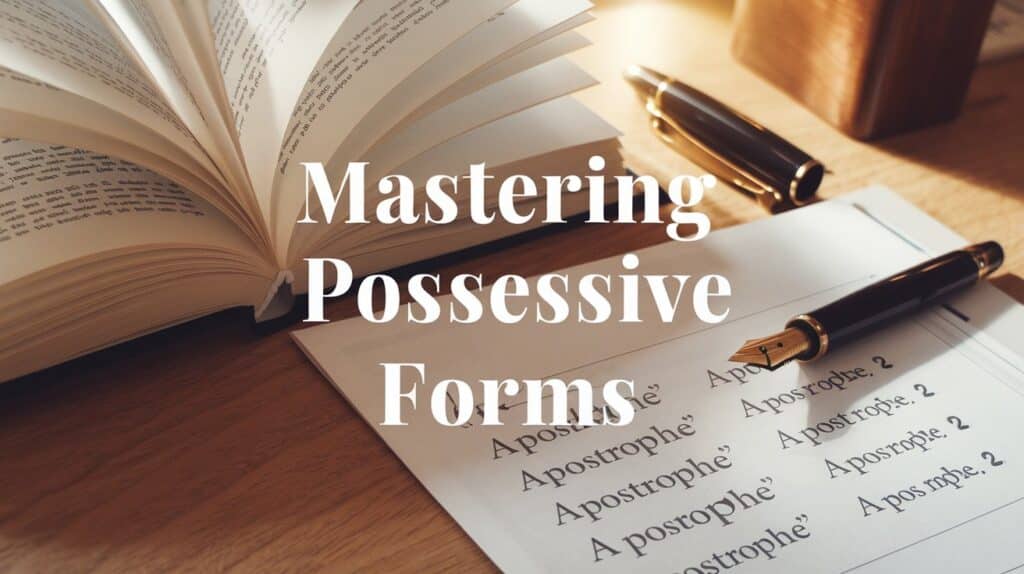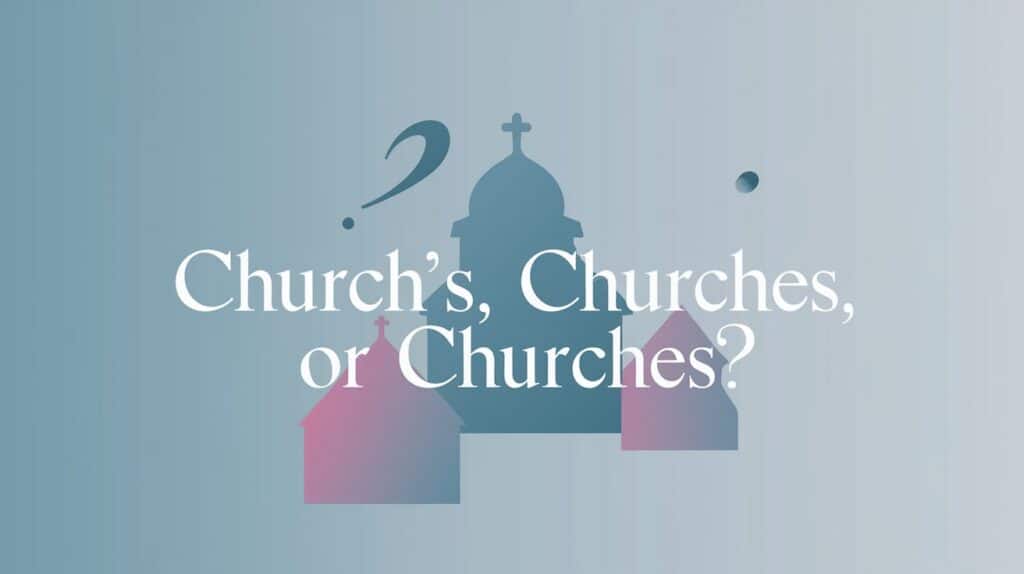Grammar’s Subtle Complexity
The English language presents intricate challenges when it comes to possessive forms, and church ownership represents a perfect example of grammatical nuance.
Understanding the correct usage of Church’s, Churches’, and Churches requires careful attention to context, number, and ownership.
Decoding Singular Possession

Example Scenario: Personal Correspondence
Imagine Sarah writing an email about her local parish:
“Dear Community Members,
St. Michael’s Church’s recent renovation has transformed our worship space. The church’s new stained glass windows were generously donated by the Johnson family. This project represents our congregation’s commitment to creating a welcoming environment for all members.”
Must visit : Client’s Or Clients’ Or Clients? A Guide To Possessive Forms And Their Usage
Navigating Plural Possessions

Example Scenario: Community Newsletter
A regional religious coordinator might write:
“Respected Community Leaders,
The downtown Churches’ collaborative initiative has made significant progress. Our Churches’ joint outreach program now serves over 500 families across three neighborhoods. This collective effort demonstrates the power of community partnership.”
Grammatical Precision Matters
Example Scenario: Academic Writing
A theology professor drafting a research paper:
“The church’s historical significance cannot be understated. When examining churches’ roles in social movements, we observe a complex narrative of community engagement. Understanding the churches’ collective impact requires nuanced interpretation.”
Linguistic Nuances
Apostrophe placement represents more than a mere punctuation detail. It communicates ownership, relationship, and collective identity within written communication.
Professional Documentation
Precise grammar signals professionalism. Whether in religious newsletters, community announcements, or institutional communications, correct possessive forms matter.
Example Scenario: Historical Documentation
A local historian documenting community development:
“The church’s architectural evolution reflects broader social changes. Local churches’ preservation efforts have maintained crucial historical landmarks. Each church’s unique story contributes to our understanding of community heritage.”
You Might Also Like : 20 Professional Ways To Say “It Was A Pleasure Meeting You”
Advanced Usage Scenarios
Example Scenario: Grant Application
A non-profit director writing a funding proposal:
“The Church’s community outreach program has demonstrated exceptional impact. Our Churches’ collective approach to social services addresses critical community needs. The church’s commitment to supporting vulnerable populations sets a powerful example.”
Language Evolution
Example Scenario: Sociological Research
A sociologist exploring religious institutions:
“Examining the church’s role in modern society reveals complex dynamics. The Churches’ adaptive strategies reflect broader social transformations. Understanding how a single church’s mission intersects with wider community needs provides valuable insights.”
Practical Learning Strategies
Example Scenario: Educational Workshop
A grammar instructor explaining possessive forms:
“Let’s explore how the church’s linguistic representation changes. Notice how Churches’ indicates collective ownership, while a single church’s points to individual characteristics. Mastering these nuances requires careful attention to context.”
Practical Application Table
Here’s a table illustrating various possessive scenarios:
| Scenario | Correct Form | Example Sentence |
|---|---|---|
| Single Church Ownership | Church’s | Emily noted that St. Peter’s Church’s stained glass windows were remarkable. |
| Multiple Churches Sharing | Churches’ | The regional Churches’ council met to discuss community programs. |
| Simple Plural Reference | Churches | Several churches participated in the local charity event. |
| Descriptive Context | Churches | Downtown churches represent important community landmarks. |
Also like to know this : 23 Professional Ways To Say “Thank You For Your Cooperation”
Writing Context Considerations

Professional communication demands grammatical accuracy. Whether drafting emails, newsletters, or official documents, understanding possessive forms prevents potential misunderstandings.
Email Communication Examples
Consider these communication scenarios:
“Dear Congregation Members,
Our Church’s upcoming renovation plans will transform our worship space.”
“Respected Community Leaders,
The regional Churches’ collaborative initiative continues to make significant progress.”
Advanced Usage Scenarios
Complex communication scenarios require sophisticated grammatical understanding. Sophisticated writers navigate these nuances with practiced ease.
Comprehensive Ownership Table
| Name | Context | Possessive Form | Detailed Example |
|---|---|---|---|
| Michael Thompson | Single Church Communication | Church’s | St. Andrew’s Church’s annual report details our community impact. |
| Rebecca Rodriguez | Multiple Church Coordination | Churches’ | The Churches’ joint outreach program addresses regional challenges. |
| David Chen | General Church Reference | Churches | Local churches contribute significantly to community welfare. |
| Jennifer Martinez | Descriptive Communication | Churches | Urban churches play crucial roles in social support. |
Language Evolution
Grammar rules continuously adapt. Understanding possessive forms represents an ongoing learning process for writers and communicators.
Cultural Communication
Different cultural contexts might influence grammatical interpretations. Sensitivity to linguistic nuances becomes paramount.
Practical Learning Strategies
Mastering possessive forms requires consistent practice and attention to detail. Reading diverse materials helps develop intuitive understanding.
Academic and Professional Growth
Grammatical precision opens doors to more effective communication across various professional and academic domains.
Conclusion: Grammatical Mastery
Mastering possessive forms represents a journey of continuous learning. Attention to detail, consistent practice, and openness to linguistic nuances transform good communicators into exceptional ones.
Apostrophe usage might seem trivial, but it reveals sophisticated understanding of language dynamics. Whether discussing a single church’s mission or multiple churches’ collaborative efforts, precision matters.
Must Explore : 15 Other Ways To Say “Welcome Back” (With Examples)

Kayla Rogers is a writer at Slangy Text who loves exploring modern acronyms & slangs and how they shapes our conversations. She enjoys sharing fun and interesting articles that connect with readers. When she’s not writing, Kayla likes to keep up with the latest trends or relax with a good book.







